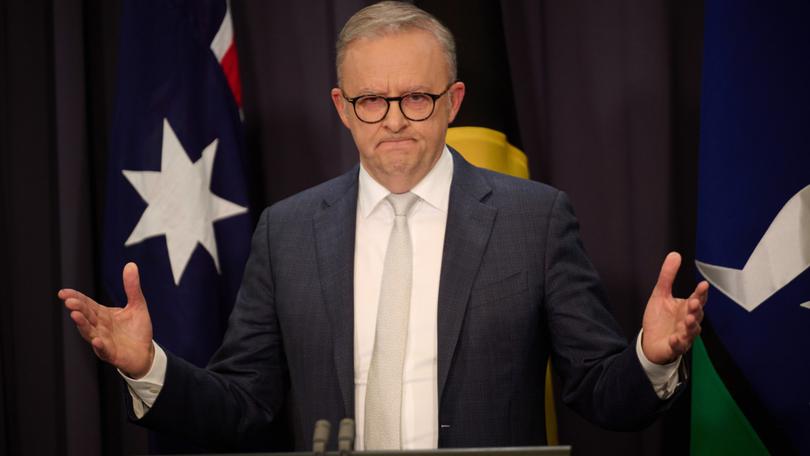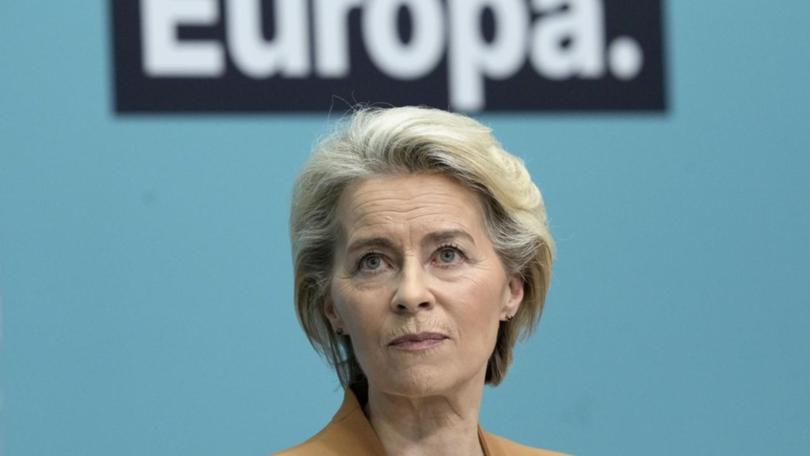NATO: Anthony Albanese’s decision to skip summit sends wrong signal on Ukraine
Anthony Albanese’s decision to skip NATO will be seen as a sign Australia sees itself as immune from a Russian win in Ukraine, experts have warned.

Anthony Albanese’s decision to skip NATO will be seen as a sign Australia sees itself as immune from a Russian win in Ukraine, experts have warned.
Mr Albanese told the ABC’s Sarah Ferguson that he was going to skip the summit because Australia wasn’t a member of NATO.
“I’m not going because we’re not members of NATO,” he said.
Sign up to The Nightly's newsletters.
Get the first look at the digital newspaper, curated daily stories and breaking headlines delivered to your inbox.
By continuing you agree to our Terms and Privacy Policy.“We never accepted the invitation. We were considering what was before us.
“When I went to the first NATO Summit, it was an opportunity for the first time to meet many world leaders.”
Mr Albanese, who considered skipping the summit last year, will send Deputy Prime Minister Richard Marles instead.
Sophia Gaston, an Australian expert in national security at the London-based think tank Policy Exchange said the decision risked sending the wrong signals.
“This NATO Summit is incredibly important as it is taking place as Ukraine stands in one of the most perilous positions since the invasion, and in the shadow of the looming US elections in which its future could be decided,” she said.
“There is a risk that Australia’s absence at the leader level conveys a sense that it does not view itself as having a direct stake in outcomes beyond its immediate region, including the threat of a Russian victory in Ukraine.
“Australia must understand that its contributions in Ukraine are excellent value-for-money, given the stakes of a Russian victory for its own immediate interests in its region, and the degree to which it will rely on support from Euro-Atlantic powers in the event of any serious escalation by China.
“Australia has a profound interest in keeping Europe’s eyes on its home region and cultivating their support for its efforts to uphold stability and sovereignty.
“This is no easy task with a live war still raging and will be made more difficult if Australia is not sending senior representatives to forums such as the Munich Security Conference, Ukraine Peace Summit and the NATO Summit.”
While Australia is not a member of the trans-Atlantic alliance which was formed after the Second World War in response to the threat posed by the Soviet Union, Australia has been cooperating with the alliance since 2005 and signed a formal agreement to boost ties in 2012, when Labor was last in power and Mr Albanese was in Cabinet.
Since 2022, NATO has increased its focus on meeting the threats posed by China, which has become Russia’s war-time backer along with Iran and North Korea.
For the last three NATO summits, it has invited the leaders of four Indo-Pacific countries, New Zealand, Australia, Japan and South Korea to the gathering to attend dedicated sessions on how to respond to threats in the region.
Leader-level attendance had been expected, given last month,
US Deputy Secretary of State Kurt Campbell told the Stimson Centre that he was expecting the four leaders to attend the summit.
Oana Lungescu, former NATO Spokesperson, now a Distinguished Fellow with the Royal United Services Institute (RUSI) security and defence think-tank in London said global partnership was a key theme of this year’s summit in Washington, which also marks 75 years of the alliance.
“That’s why Secretary General Stoltenberg has invited the leaders of NATO’s four Indo-Pacific partners - Australia, New Zealand, Japan and the Republic of Korea - to join the 32 leaders of NATO allies, for the third time in a row at a NATO summit,” Ms Lungescu said.
“Russia’s illegal war in Ukraine demonstrates that our security is not regional, but global, not least because of the support Moscow is getting from China, North Korea and Iran.
“At a time when autocratic regimes are coming closer together, it’s even more important that democracies stand strong to protect the rules-based international order that benefits all of us.”
Mr Albanese’s move is in stark contrast to the enthusiasm shown by his Labour counterparts in Britain, who are on the cusp of regaining power for the first time since 2010.
David Lammy, who is set to be the next Foreign Secretary said he, Leader Keir Starmer and Defence Spokesman John Healy were looking forward to attending the Washington Summit in their first international outing if elected this Thursday.
“So of course with NATO, I hope that we will be able, working with US colleagues and our European partners particularly, to issue a joint declaration of support for Ukraine,” he told foreign journalists this week.
Albanese’s no-show won’t be the only one.
The Nightly has learned that EU Commission President Ursula von der Leyen will also stay at home and send the EU’s outgoing top diplomat Josep Borrell and the outgoing Council President Charles Michel instead.
President Von der Leyen faces a vote in the European Parliament the same week to determine if she can continue in the job for a second term.
“President von der Leyen will indeed not attend, instead focusing on her work to build a majority for a strong Europe in the European Parliament,” the President’s spokesman Eric Mamer confirmed.

Benjamin Tallis from the German Council on Foreign Relations said President Von der Leyen’s absence would not trigger a backlash because she was seen as one of Ukraine’s biggest backers in Brussels.
“She needs to make sure that she gets the votes to get that second term as Commission President,” he said.
“Given all she’s done for European security, leading the way on support for Ukraine and on integrating Ukraine into the EU, because she knows it’s about our security - this is the biggest contribution she can make.”
President Von der Leyen has visited Ukraine seven times since the war started and has strong relations with the Biden Administration.

